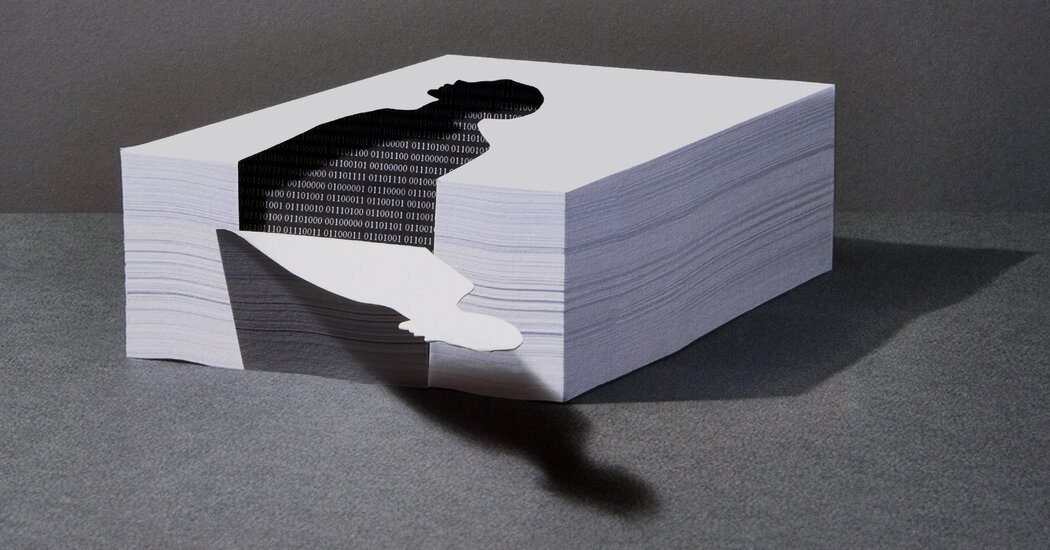I was grading assignments for an undergraduate course in memoir writing when I experienced a severe crisis of faith regarding the future — of academia, of writing, of thinking. I’d asked my students to write about an obsession, telling their life story through the lens of a pop-culture fixation. This assignment invariably produces a few surprising, insightful and energetic pieces from students who’ve never been asked to take their own interests seriously before. This time, however, I received a 2,000-word submission defining “obsession,” citing the D.S.M.-5 and multiple online sources, all written in the trademark flat, lifeless prose of ChatGPT.
Earlier this month, OpenAI revealed a new version in training mode that, at least according to the company’s chief executive, Sam Altman, is “good at creative writing.” It’s not clear when this new version might be released, but as a longtime instructor of freshman composition, I’m already well aware of the scourge of artificial-intelligence-assisted cheating going on in writing classes of all sorts. I can even sympathize, to an extent. Students get overwhelmed, they panic and resort to the plagiarism machine. These same students have been inundated with A.I. boosterism, and have no doubt encountered overly credulous news reports full of misleading claims about how miraculous A.I. tools can be.
But a creative writing student using A.I.? In a memoir writing class? I have to wonder what you are saying about your life if even you can’t be bothered to think about it.
Having written two memoirs, I know the challenges and pleasures of this work, and I want my students to experience those challenges, too. The act of writing a memoir is not just about saying “Look at me,” but rather about enabling yourself and defining who you are, in part by revisiting particularly fraught experiences, analyzing them from all angles and complicating them in the retelling. This process is — and I don’t say this lightly — an act that makes the author more fully alive.
To farm out this task, of all tasks, to a machine is deeply disheartening. What’s more, to farm it out to a machine that trawls the internet and cobbles together a fake version of you is not just academic dishonesty, it’s a broader degradation of our memories and our humanity. It’s demoralizing to think about talented young people outsourcing not only their creative labor but their life stories to a computer.
Yet it’s not the students who concern me most. The temptation to use A.I. as a shortcut is a symptom of a culture that has so devalued both writing and reading that it seems to some of my students like a rational choice to opt out of both.











